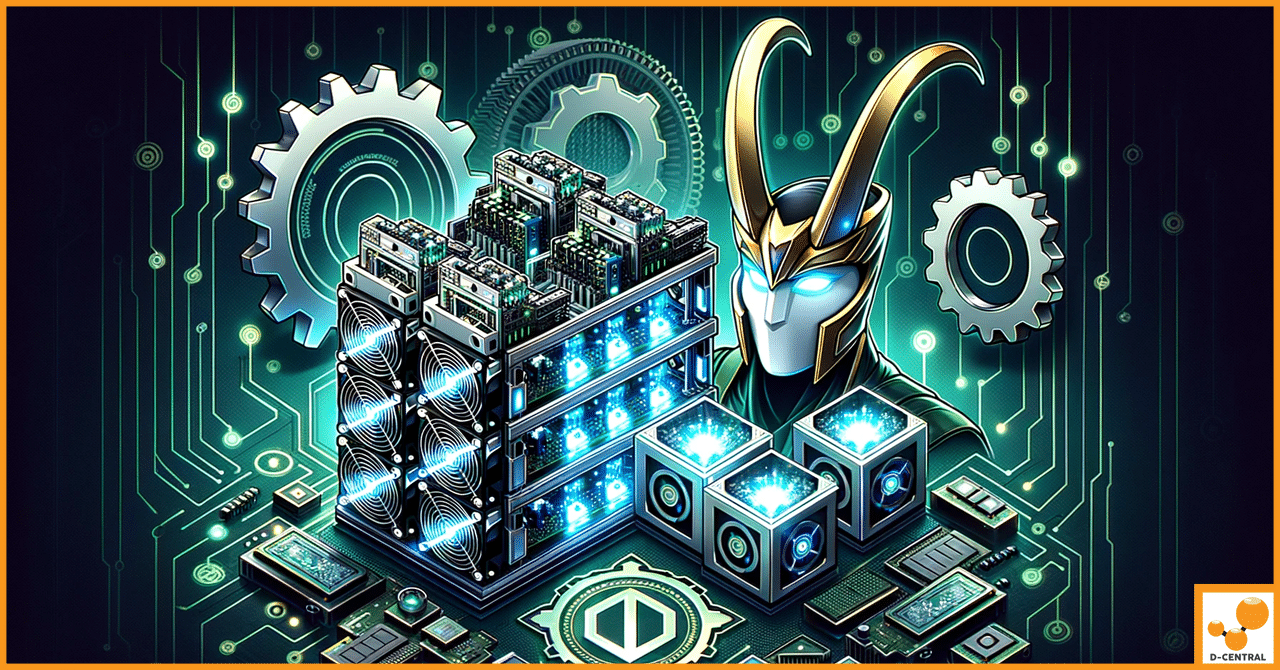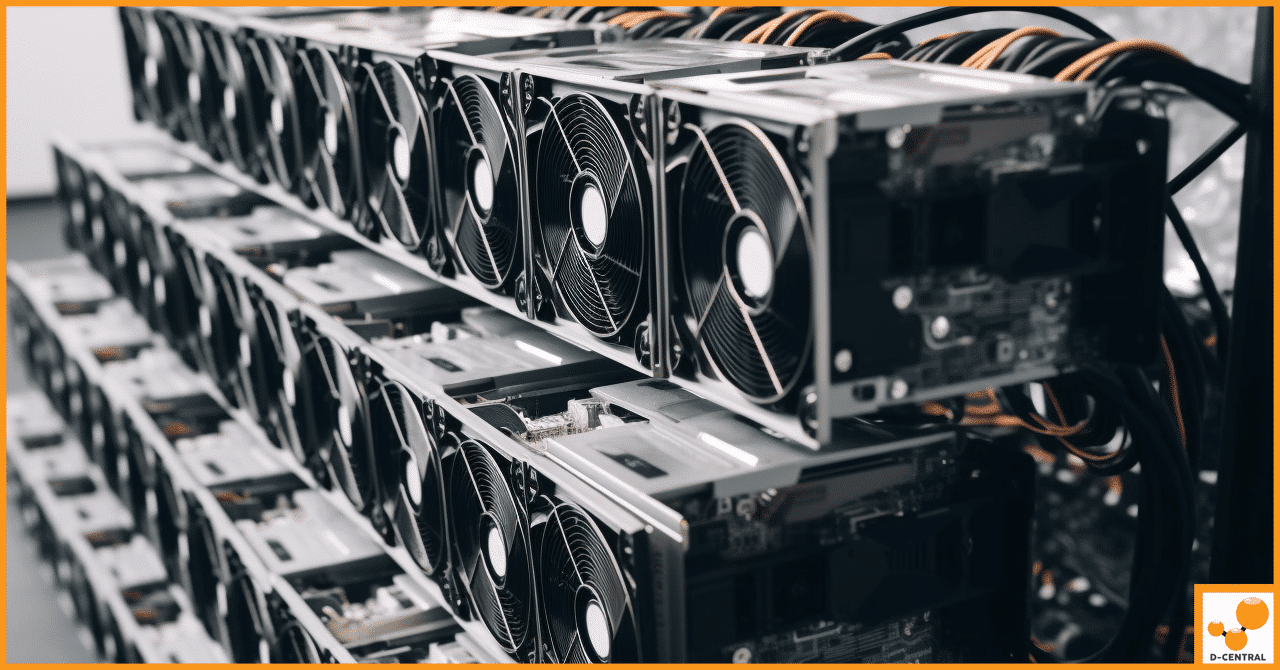
Unlocking Superior Home Mining Efficiency with the Power of the Loki Kit
In recent years, the world has witnessed an unprecedented surge in interest surrounding Bitcoin and its underlying technology. As the
4479 Desserte Nord Autoroute 440, Laval, QC H7P 6E2

Welcome to our comprehensive guide on ASIC miners. In this article, we will delve into the world of ASIC mining, comparing top brands and models, and providing you with all the information you need to make an informed decision about your mining hardware.
ASIC miners, or Application-Specific Integrated Circuit miners, are at the heart of Bitcoin mining. These specialized devices are designed for one purpose and one purpose only – to solve the complex mathematical problems that underpin the Bitcoin network. Their single-minded efficiency has made them the go-to choice for Bitcoin miners worldwide, outperforming other types of mining hardware in terms of speed and energy consumption.
In the following sections, we will explore what ASIC miners are, how they work, and the key factors to consider when choosing an ASIC miner. We will then compare top ASIC miner brands and models, providing a deep dive into their features, performance, and suitability for different mining scenarios.
Whether you’re a seasoned miner or a newcomer to the field, understanding the capabilities and limitations of different ASIC miners is crucial to maximizing your mining efficiency and profitability. So, let’s embark on this journey of discovery and find the perfect ASIC miner for your needs.
ASIC miners, standing for Application-Specific Integrated Circuit miners, are specialized pieces of hardware designed explicitly for mining cryptocurrencies like Bitcoin. Unlike general-purpose hardware such as CPUs (Central Processing Units) or GPUs (Graphics Processing Units), ASIC miners are tailored for a specific computational task, which in this case, is the process of mining.
How Do ASIC Miners Work?
The primary function of ASIC miners is to solve complex mathematical problems that secure the Bitcoin network, a process known as proof-of-work. These problems involve finding a hash – a product of a cryptographic function – that fits certain criteria. When a solution is found, a new block is added to the Bitcoin blockchain, and the miner is rewarded with a certain amount of Bitcoin.
ASIC miners perform this task with remarkable efficiency. They repeatedly hash the block header while changing a small portion of the data, known as a ‘nonce’, until they find a solution. This process requires substantial computational power and energy, but ASIC miners, with their specialized design, handle it with unparalleled speed and energy efficiency.
Advantages of ASIC Miners Over Other Types of Miners
ASIC miners offer several distinct advantages over other types of mining hardware:
However, it’s important to note that while ASIC miners are powerful, they are not versatile. Unlike GPUs, which can be repurposed for different tasks, ASIC miners are only useful for the specific task they are designed for. This lack of flexibility is something to consider when investing in mining hardware.
When it comes to selecting an ASIC miner, several factors come into play. Here are some of the most critical aspects to consider:
Hash Rate
The hash rate of an ASIC miner refers to the number of calculations it can perform per second. A higher hash rate means the miner can solve the mathematical problems required for mining more quickly, leading to a higher chance of earning Bitcoin rewards. However, a higher hash rate often comes with increased power consumption, so it’s essential to balance these two factors.
Power Efficiency
Power efficiency is a crucial factor in determining the profitability of a mining operation. ASIC miners consume a significant amount of electricity, and the cost of power can quickly eat into your mining profits. Therefore, it’s essential to consider the power efficiency of an ASIC miner, usually measured in J/GH (joules per gigahash). A lower J/GH number indicates a more power-efficient miner.
Price
The cost of the ASIC miner is another critical factor to consider. Higher-end models with greater hash rates and power efficiency typically come with a higher price tag. It’s important to calculate the potential return on investment (ROI) before making a purchase. Remember, a more expensive miner doesn’t always mean higher profitability, especially if your electricity costs are high.
Longevity and Durability
Mining is a 24/7 operation, and the durability of your ASIC miner can significantly impact its lifespan and, consequently, your profits. Look for miners built to withstand continuous operation, and consider the operating conditions, such as cooling and dust levels, to ensure your miner lasts as long as possible.
Manufacturer’s Reputation and Customer Support
Finally, consider the reputation of the ASIC miner’s manufacturer. Look for companies with a track record of producing reliable, high-quality miners. Additionally, good customer support can be invaluable, especially if you’re new to mining. Check for manufacturers that offer comprehensive support, including setup guides, troubleshooting help, and warranty protection.
In the world of Bitcoin mining, several manufacturers have established themselves as leaders in the production of ASIC miners. Let’s take a closer look at three of the top brands: Bitmain, MicroBT, and Canaan.
Bitmain
Bitmain is a Beijing-based company founded in 2013 by Micree Zhan and Jihan Wu. It quickly rose to prominence and is now considered one of the leading ASIC miner manufacturers globally. Bitmain’s Antminer series, particularly the S9 model, has been a popular choice among miners for its high hash rate and energy efficiency. The company has also been praised for its customer service and the robustness of its products.
MicroBT
MicroBT is another significant player in the ASIC miner market. Specializing in the research, production, and distribution of ASIC chips and products, MicroBT has made a name for itself in the cloud computing, artificial intelligence, and blockchain industries since its inception. The company recently partnered with Riot Platforms, the largest public U.S. Bitcoin mining company in terms of developed capacity, to bring the production of MicroBT’s ASICs to America. Their flagship model, the Whatsminer M31S, is known for its impressive hash rate and power efficiency.
Canaan
Canaan Creative, known simply as Canaan, is a China-based computer hardware manufacturer established in 2013. Canaan is renowned for inventing the world’s first ASIC-powered Bitcoin mining machine, which significantly catalyzed the growth of an advanced Bitcoin mining sector. Over the years, Canaan has launched several ASIC miners, each more efficient and powerful than the last, earning them a reputation for innovation and quality.
In the following sections, we will delve deeper into the flagship models of these manufacturers, comparing their specifications and performance to help you make an informed decision.
In this section, we will delve into the specifics of the top models from each brand, providing a detailed review and comparison to help you make an informed decision.
Each of these models has its own set of pros and cons, and the ideal choice depends on your specific needs and circumstances. Whether you prioritize power efficiency, hash rate, or longevity and durability, there is an ASIC miner out there that fits the bill.
Choosing the right ASIC miner is not a one-size-fits-all situation. It requires careful consideration of your individual mining goals and circumstances. Here are some tips to guide you in making the right choice:
Remember, the best ASIC miner for you is one that fits your specific needs and circumstances. It’s always a good idea to do thorough research and consider all factors before making a decision.
In this comprehensive guide, we’ve explored the world of ASIC miners, delving into what they are, how they work, and their advantages over other types of miners. We’ve also discussed the key factors to consider when choosing an ASIC miner, including hash rate, power efficiency, price, longevity, and the manufacturer’s reputation and customer support.
We compared top ASIC miner brands—Bitmain, MicroBT, and Canaan—and took a deep dive into their flagship models: the Bitmain Antminer S19 Pro, MicroBT Whatsminer M30S+, and Canaan AvalonMiner 1246. Each model has its unique strengths and ideal use cases, and the best choice depends on your individual mining goals and circumstances.
Choosing the right ASIC miner is a significant decision that can greatly impact your Bitcoin mining success. It’s crucial to make an informed decision, considering all the factors we’ve discussed. Remember, the best ASIC miner for you is one that fits your specific needs and circumstances.
At D-Central Technologies, we understand that the world of Bitcoin mining can be complex. That’s why we’re here to help. Whether you need advice on choosing the right ASIC miner, sourcing mining hardware, or any other mining needs, don’t hesitate to reach out to us. Our team of experts is always ready to provide you with the support you need to succeed in your Bitcoin mining journey.
DISCLAIMER: D-Central Technologies and its associated content, including this blog, do not serve as financial advisors or official investment advisors. The insights and opinions shared here or by any guests featured in our content are provided purely for informational and educational purposes. Such communications should not be interpreted as financial, investment, legal, tax, or any form of specific advice. We are committed to advancing the knowledge and understanding of Bitcoin and its potential impact on society. However, we urge our community to proceed with caution and informed judgment in all related endeavors.
Related Posts

In recent years, the world has witnessed an unprecedented surge in interest surrounding Bitcoin and its underlying technology. As the

In the rapidly evolving world of cryptocurrency, Application-Specific Integrated Circuit (ASIC) miners have become the backbone of the industry. These

In the rapidly evolving world of cryptocurrency, securing digital assets has become paramount for both novice and seasoned investors alike.